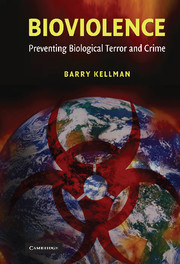Conclusion
Published online by Cambridge University Press: 27 July 2009
Summary
Advancing bioscience offers a future of endless possibilities – a consummation devoutly to be wished. But it also affords emerging methods of devastation that are ever harder to control. Today, a few undeterrable people could use pathogens to inflict massive damage, and there are many reasons to believe that someone will try. These people could be anywhere on Earth.
Here may be seen the future of challenges to international peace and security at the beginning of the third millennium: scientific progress intertwined with malevolent threats that have consequences for all humanity. Across scientific disciplines, progressing capabilities – initially for managing and communicating information, now for medicine, and soon for industrial applications (nanotechnology) – improve our lives and yet carry, inextricably, escalating risks to humanity. These growing threats do not argue for braking scientific progress, but they undercut notions that new threats can be effectively addressed with yesterday's policies.
Our era is witnessing a scientific revolution which calls for a revolution in how we conceive of security. Historically, scientific revolutions that have prompted critical changes in the means and methods of executing violence have stimulated new security paradigms, but too often these paradigms were appreciated only when their obsolete predecessors had painfully failed. With regard to bioviolence, the consequences of learning through horrible experience are unacceptable.
This book has discussed approximately three dozen bioviolence prevention measures that could reduce risks of that unacceptable experience.
- Type
- Chapter
- Information
- BioviolencePreventing Biological Terror and Crime, pp. 242 - 246Publisher: Cambridge University PressPrint publication year: 2007



